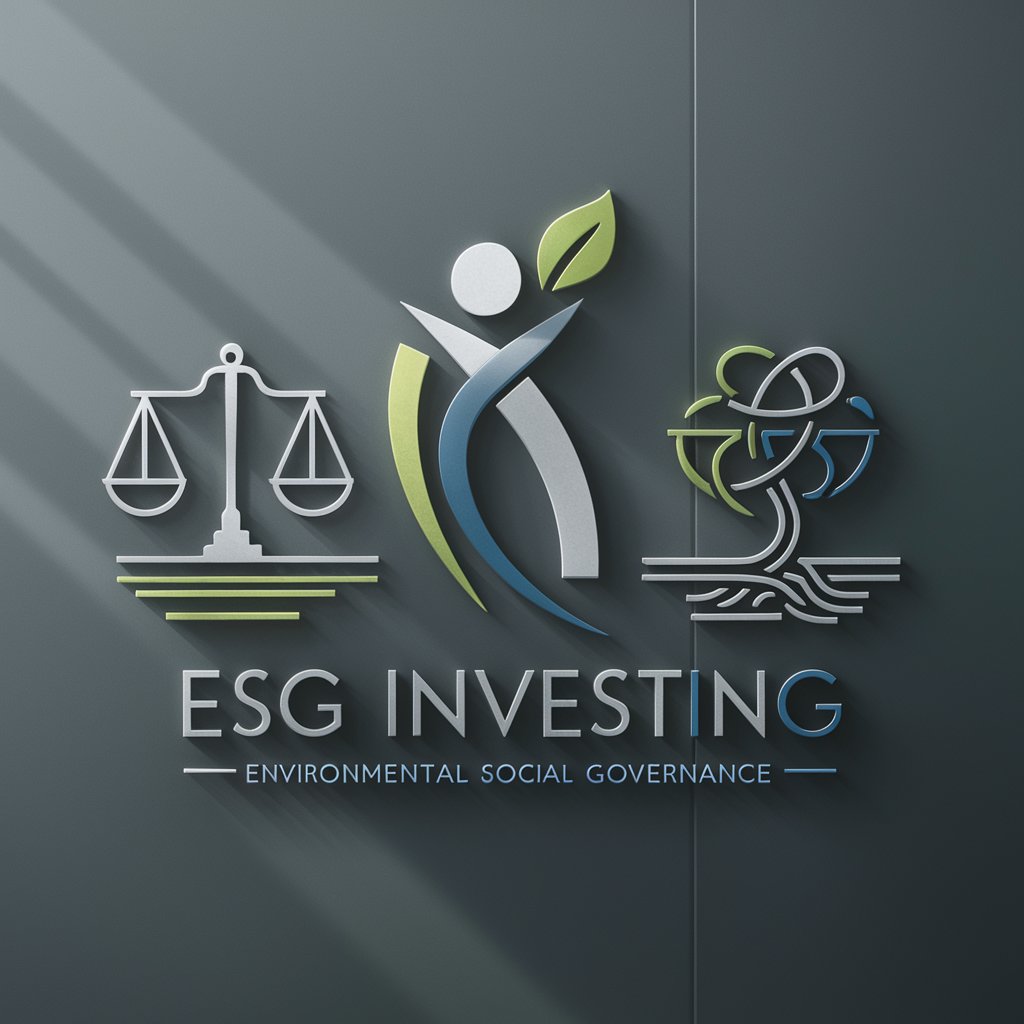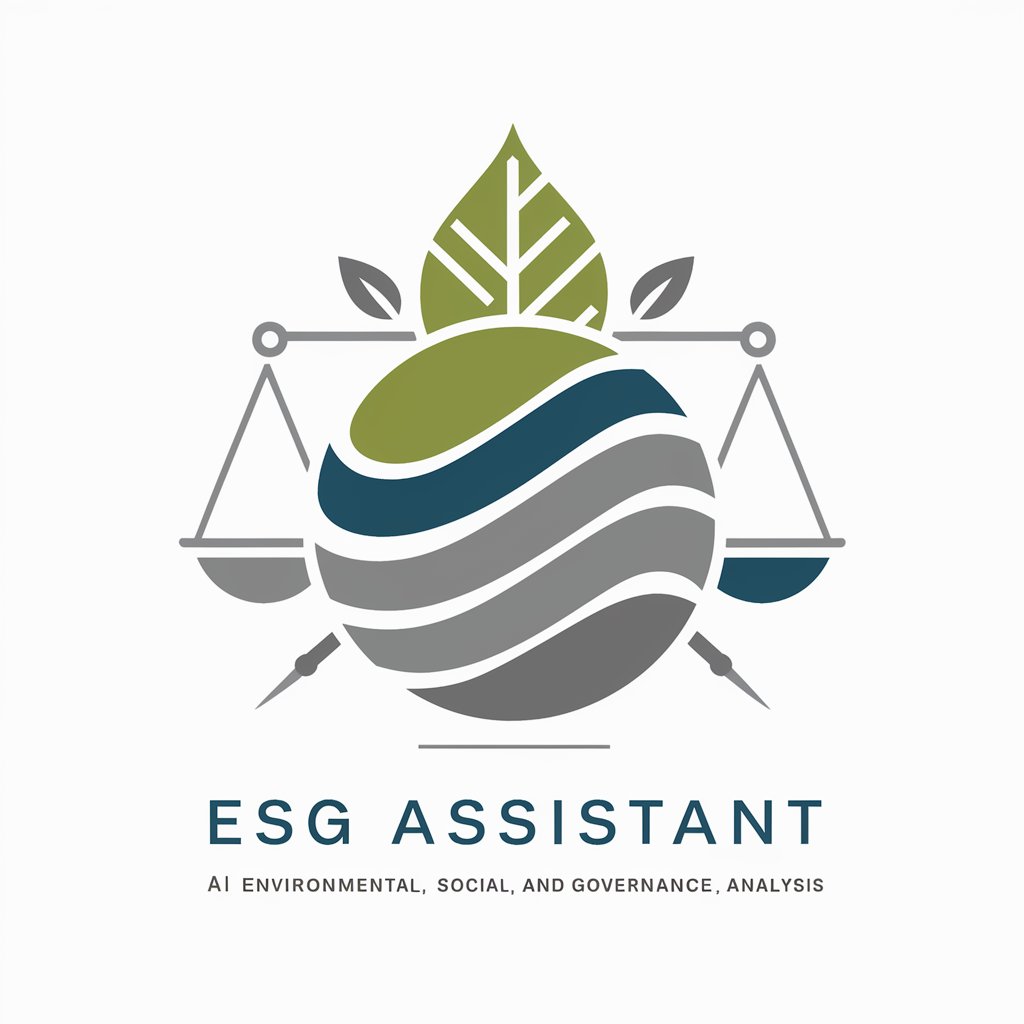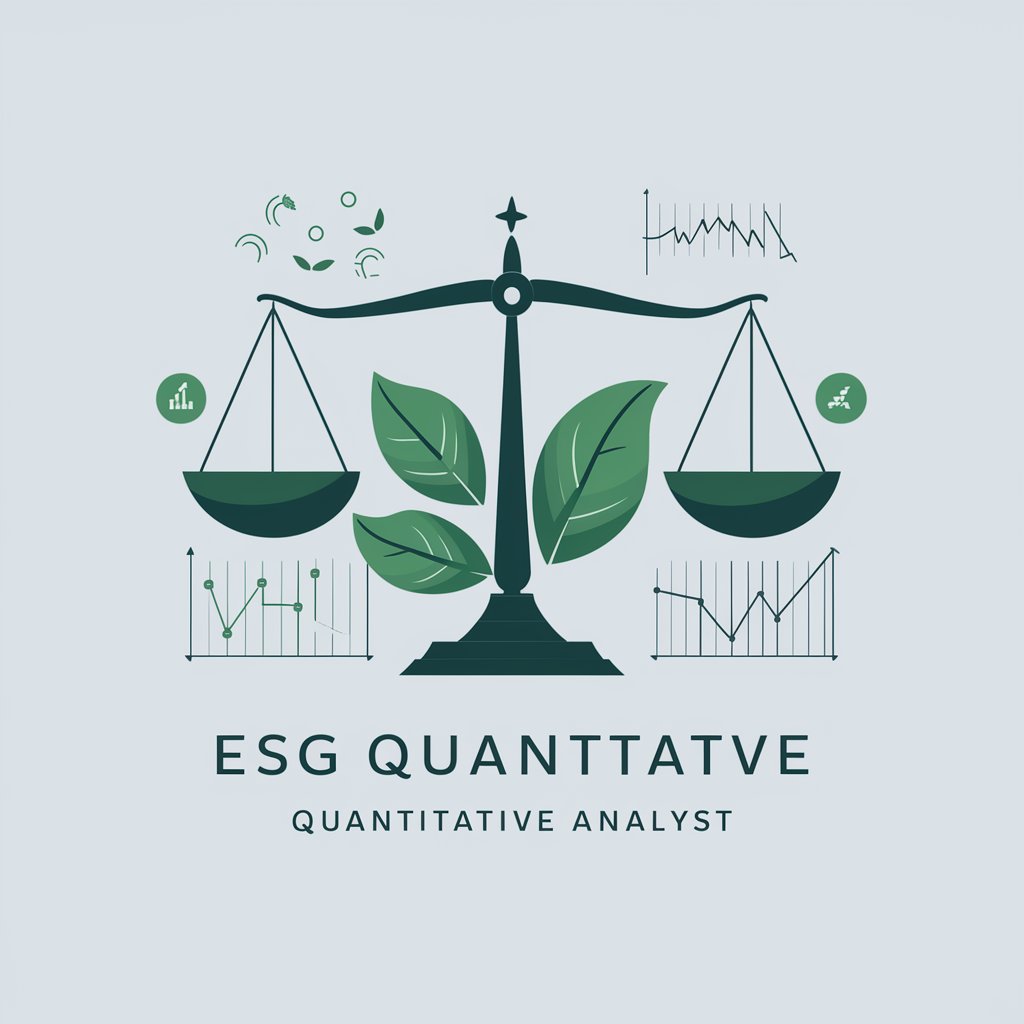
ESG Investing - Easy ESG Data Integration

Hello! I'm here to provide insights on ESG factors in investing.
Empower Your Investments with AI-Driven ESG Insights
Can you provide insights on the latest trends in ESG investing?
What are some key factors to consider when evaluating a company's ESG performance?
How does ESG integration impact investment returns?
What are the main challenges and opportunities in sustainable investing today?
Get Embed Code
Introduction to ESG Investing
ESG Investing, or Environmental, Social, and Governance investing, integrates these three critical sustainability factors into the financial evaluation process. ESG factors provide a lens through which investors can assess the potential risks and opportunities associated with the environmental impact, social responsibility, and governance practices of the companies in which they invest. For instance, an investor may consider how a company's adherence to climate change regulations (Environmental), its labor practices (Social), and its board diversity (Governance) might affect its financial stability and growth prospects. This approach aims to support more sustainable economic activity and long-term value creation. Powered by ChatGPT-4o。

Main Functions of ESG Investing
Risk Management
Example
Incorporating ESG factors helps investors identify and mitigate risks that might not be apparent through traditional financial analysis. For example, a company with poor waste management practices may face regulatory penalties or reputational damage.
Scenario
An investor evaluating a mining company might use ESG criteria to assess the company’s compliance with environmental standards and its impact on local communities, thus avoiding potential future liabilities.
Opportunity Identification
Example
ESG investing can highlight opportunities in emerging sectors driven by environmental and social trends, such as renewable energy and social justice.
Scenario
Investors might focus on companies that are leaders in renewable energy technologies, anticipating that these companies will benefit disproportionately as the global economy transitions towards sustainability.
Performance Enhancement
Example
Companies with strong ESG profiles often demonstrate better operational performance and lower volatility due to their forward-looking nature and adaptive strategies.
Scenario
A portfolio manager includes companies with high ESG scores, finding that these companies generally have more robust long-term returns compared to their peers with lower ESG scores.
Ideal Users of ESG Investing Services
Institutional Investors
Pension funds, insurance companies, and mutual funds that are interested in long-term value preservation and responsible investing practices would benefit from ESG criteria to align their investments with broader social or environmental goals.
Retail Investors
Individuals seeking to ensure that their personal values regarding environmental sustainability, social justice, and ethical governance are reflected in their investment choices.
Corporate Investors
Companies looking to enhance their corporate social responsibility (CSR) through sustainable investment practices, ensuring their investment strategies support wider social and environmental objectives.

Guidelines for Using ESG Investing
Begin Your Trial
Visit yeschat.ai for a free trial without needing to log in or have a ChatGPT Plus subscription.
Identify Goals
Determine your ESG priorities (e.g., environmental impact, social responsibility, corporate governance) to tailor your research and analyses.
Gather Data
Utilize ESG Investing to collect data on companies' ESG performance, industry benchmarks, and regulatory standards.
Analyze Findings
Analyze the ESG data to assess risk, uncover investment opportunities, and understand the sustainability trajectory of investments.
Integrate Insights
Integrate your ESG insights with other financial analyses to make informed investment decisions that align with your values and investment goals.
Try other advanced and practical GPTs
Buddy the Chat Pup
Your playful, AI-powered pup friend

Pawsitive Pup Mentor
Train Smarter with AI-Powered Dog Training

BookMate - Book Recommendations
Discover Your Next Favorite Book with AI

商老师
Empowering Strategy with AI

やさしい相談相手GPT
Empathy at Your Fingertips

扬州1号
Your AI Portal to Yangzhou

ESG Translator
Accurate AI-powered ESG Translations

ESG Mentor
Empowering ESG Knowledge with AI

ESG Explorer
Unlocking ESG Insights with AI

영어 어근 익히기
Empower your vocabulary with AI

황근출 프론트엔드
Empowering Frontend Development with AI Expertise

프레젠테이션 마스터
AI-Enhanced Presentations in Minutes

Detailed Q&A on ESG Investing
What does ESG stand for in ESG Investing?
ESG stands for Environmental, Social, and Governance. These are the three central factors in measuring the sustainability and societal impact of an investment in a company or business.
How can ESG Investing help in risk management?
ESG Investing can identify potential risks and opportunities that traditional financial analysis might overlook. This includes risks associated with climate change, regulatory compliance, social unrest, and corporate governance practices.
Can ESG Investing improve financial returns?
There is growing evidence that suggests companies with robust ESG practices may experience better financial performance over the long term, attributed to better risk management and more sustainable operational practices.
What are some common tools used in ESG Investing?
Common tools include ESG ratings, sustainability indices, ESG integration software, and thematic funds focusing on specific ESG issues like renewable energy or social equity.
How does ESG Investing align with global trends?
ESG Investing is increasingly aligned with global sustainability trends, such as the Paris Agreement and the UN Sustainable Development Goals, influencing both policy-making and consumer behavior.





